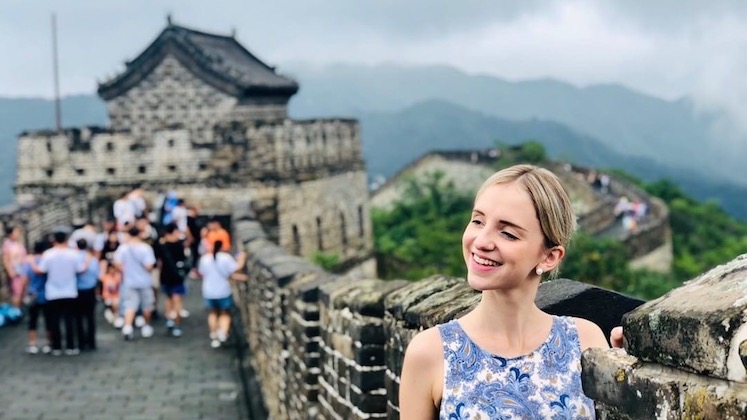
What was the best part of your course, and how do you think you will use what you learned?
I chose ‘The Political Economy of Urbanisation in China and Asia: Globalisation and Uneven Development’ course. Since I started to study International Social and Public Policy with Politics with the Department of Social Policy at the LSE in London, we used to talk very frequently about politics in East Asia and China. I developed a strong interest and decided to become a visiting student at the university in Beijing to actually experience this country.
Although I do not study Geography at LSE, I have always been fascinated by topics such as city planning, urbanisation and gentrification in inner cities around the world. The lectures in the morning and the classes in the afternoon were filled with controversial discussions and the student participation was extremely high. I can highly recommend the program and it surely enriched my understanding of China and its politics.
It was so helpful that all of the students in class have different academic backgrounds. Coming together, talking about different topics and exchanging opinions and ideas – I gained an insight into the processes of urbanisation that took place during recent years.
The best part of the course was the field trip to some residential areas in Beijing. Together with our professor, we could actually experience the living situation of some citizens and it clearly helped me to understand the theoretical concepts of the lectures.
All in all, it can be said that I have learned a lot and enriched my horizons by studying a completely new academic field that will continue to gain even more importance in the 21st century.
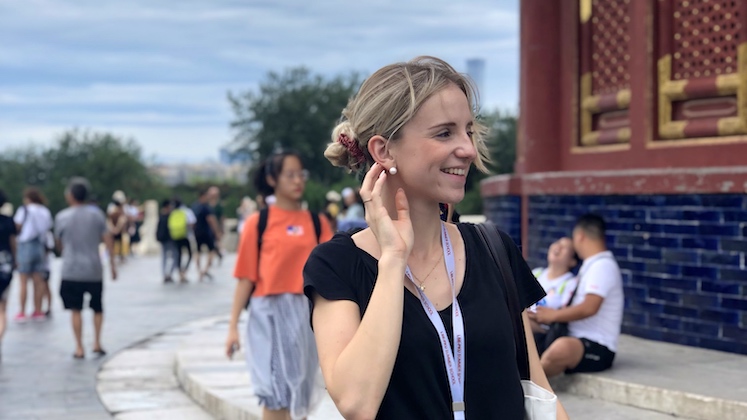
What did you think about life in Beijing?
Life in Beijing is just super exciting because of its fast-paced environment. I have never been to Asia before I arrived at the LSE-PKU Summer School. I was impressed by the culture in Beijing and felt very welcome at the university and in the city.
Together with my friends, we visited many different tourist destinations, had walks in the inner city and enjoyed the sunny weather by visiting gardens and parks which are all near the campus. It was very exciting to walk around these beautiful places and it was quite easy for me to get used to this completely new city. I will definitely visit this city again in the future!
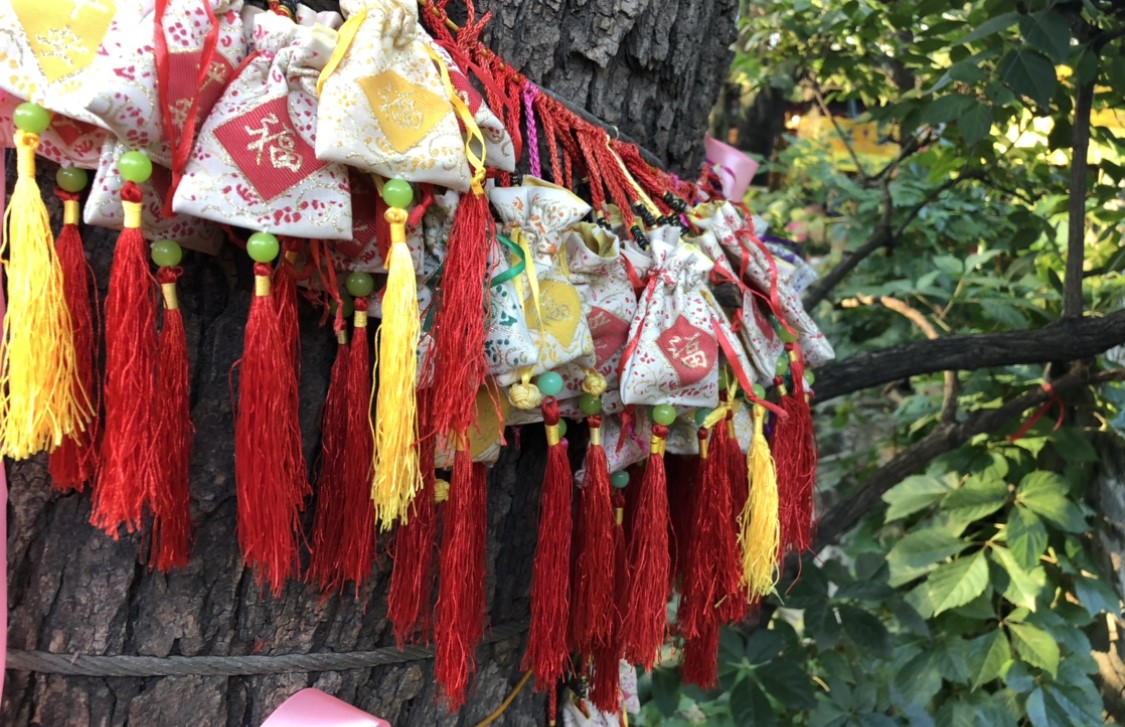
What did you think about your fellow students?
On the one hand, I met many students from many different parts of the world which resulted in very insightful discussions in class. On the other hand, course assistants and local students highly enriched my experience in Beijing. It was so nice to see their lives at Beijing university and it was amazing that all of them really helped us if we had any questions regarding the Summer School, life in Beijing or any other suggestions. I spent a lot of time with my friends and we explored the city together. It was good to know that there are people who really want to support you.
We went to the Great Wall of China together and visited the Summer Palace during our first weekend in Beijing – the group dynamic was very positive, and we had a lot of fun.
It was not that easy to say goodbye at the last day. However, the good thing is that I can see many of them at LSE in London and we already made plans to visit each other again soon.
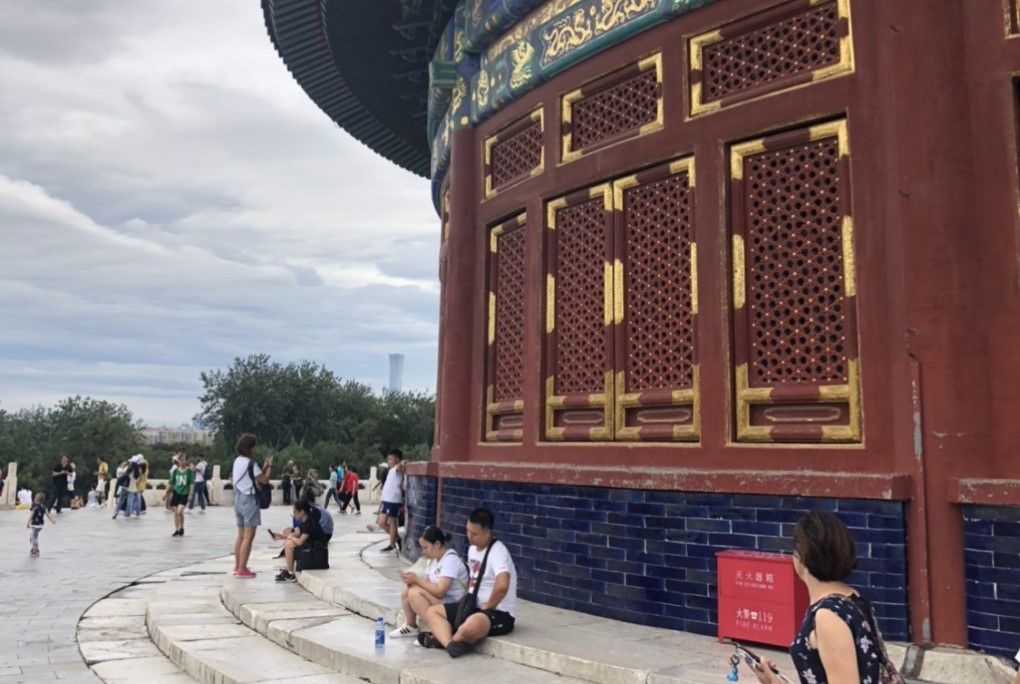
What was your overall highlight?
My overall highlight was mostly the fact that I chose a course which I have never studied before and I developed a very strong interest. We had a new topic every day and it was very fast-paced and intellectually demanding. Gaining theoretical understanding and being able to actually experience and see processes of urbanisation in China, helped me to develop a strong interest in city planning and its social outcomes.
The course was very much linked to the political economy of China, but we also addressed the need for social development and political consequences of uneven development. After the Summer School, I travelled through different parts of China with a friend and I realised that processes of urbanisation are key in order to understand China’s development during past and present times. It will be fascinating to further follow these urban changes that are taking place.
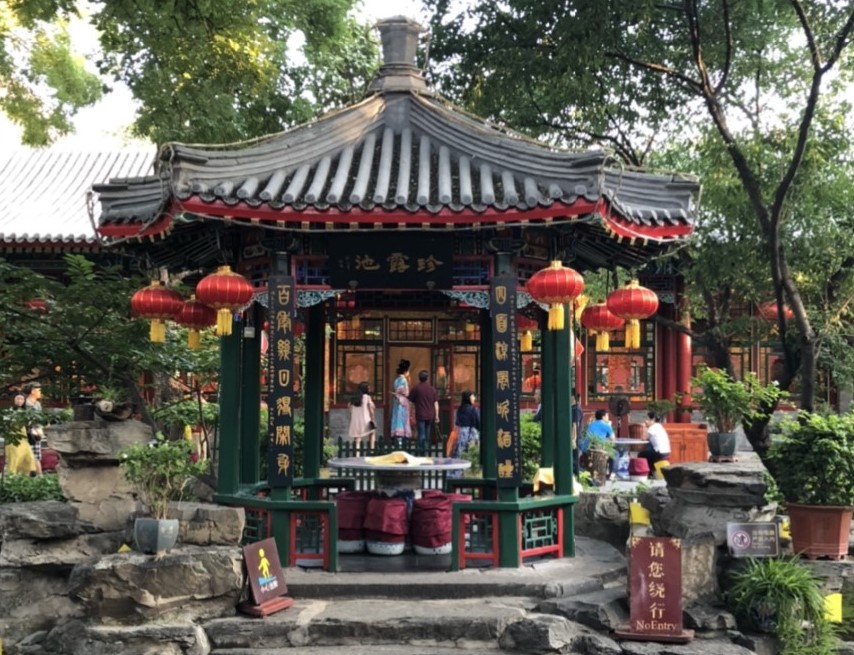
What are your top tips for potential students?
1) Be curious and choose a course that is not too similar to your major at your university. Coming across topics that you never studied before will change your perspective on many issues.
2) Be open-minded and try to meet as many people as possible. On the one hand you will get in touch with many different views on the world and on the other hand you will make international friends which massively shapes your time in Beijing and the time after.
3) Be active and full of energy to make the most of your time in China. The weather is quite challenging, and the fast-paced environment can be quite demanding at the beginning. Try to see many famous places in Beijing to actually experience the life in this fascinating and global city.
4) Be enthusiastic and open yourself up to a new culture, a different language, existing customs and values and a distinct way of life.
5) Challenge yourself and try to take different perspectives, points of view of understandings into account. It is very important to exchange ideas and to take several perspectives into account in order to find solutions to existing problems in the world we live in. Becoming part of the learning environment at the LSE-PKU Summer School in Beijing will foster your personal and intellectual development and is a fantastic opportunity to understand bigger notions and trends on a global scale!
Thank you very much to Lara for joining the LSE-PKU Summer School class of 2019 and for sharing your beautiful photos and wonderful feedback with us!